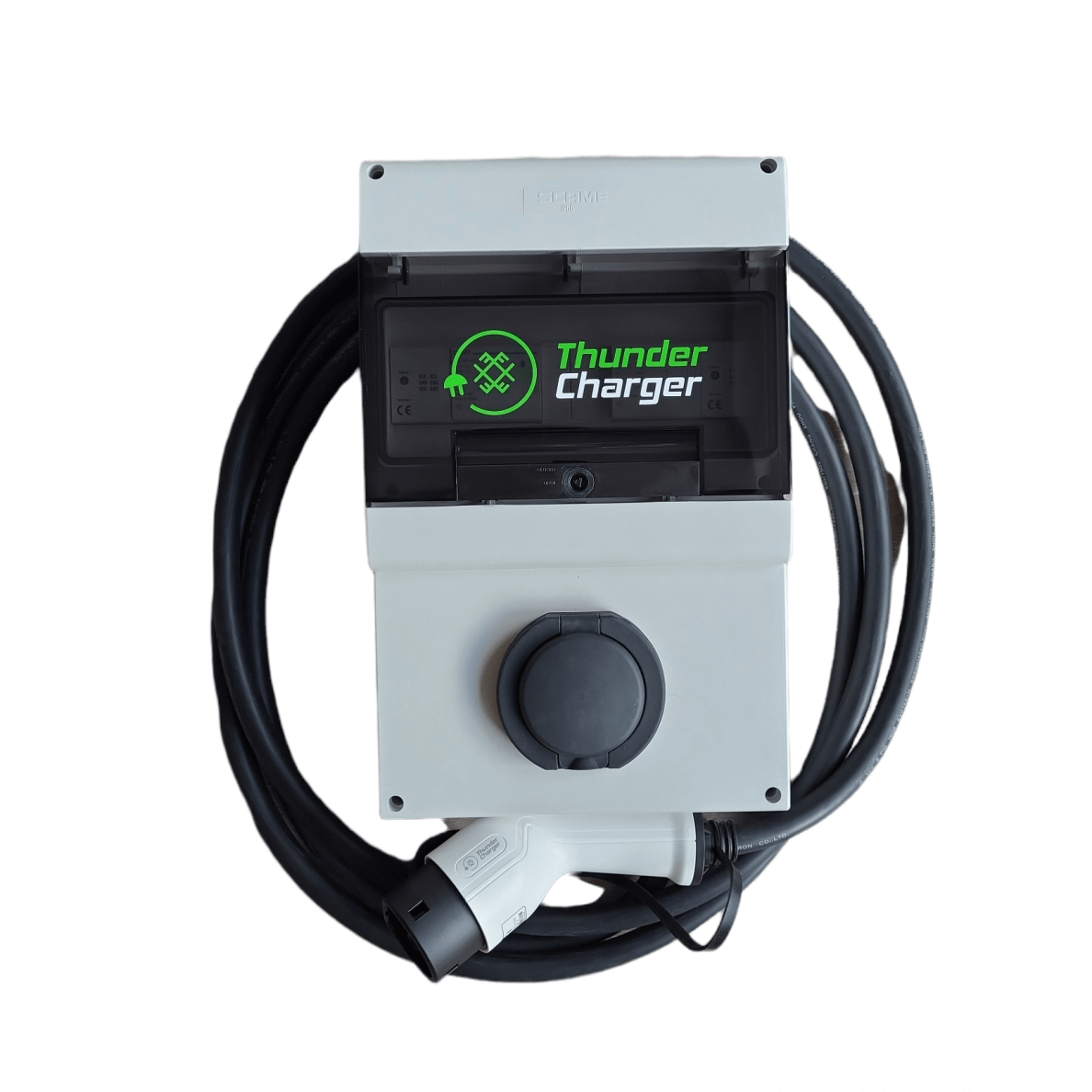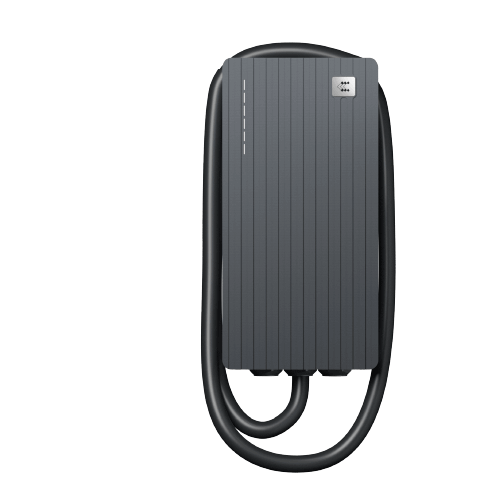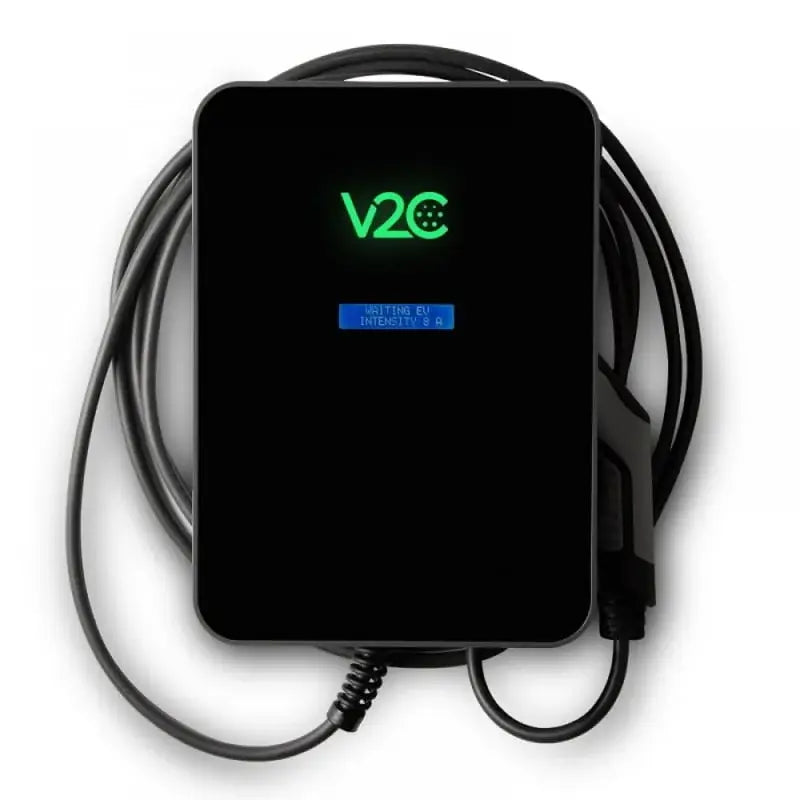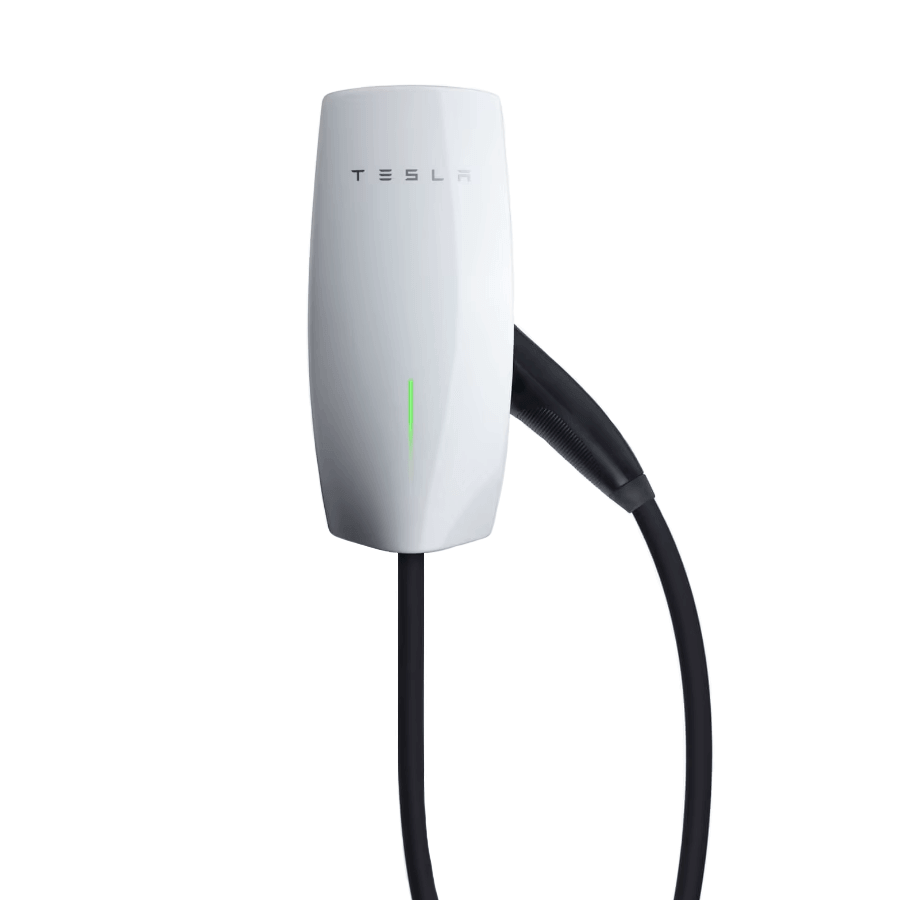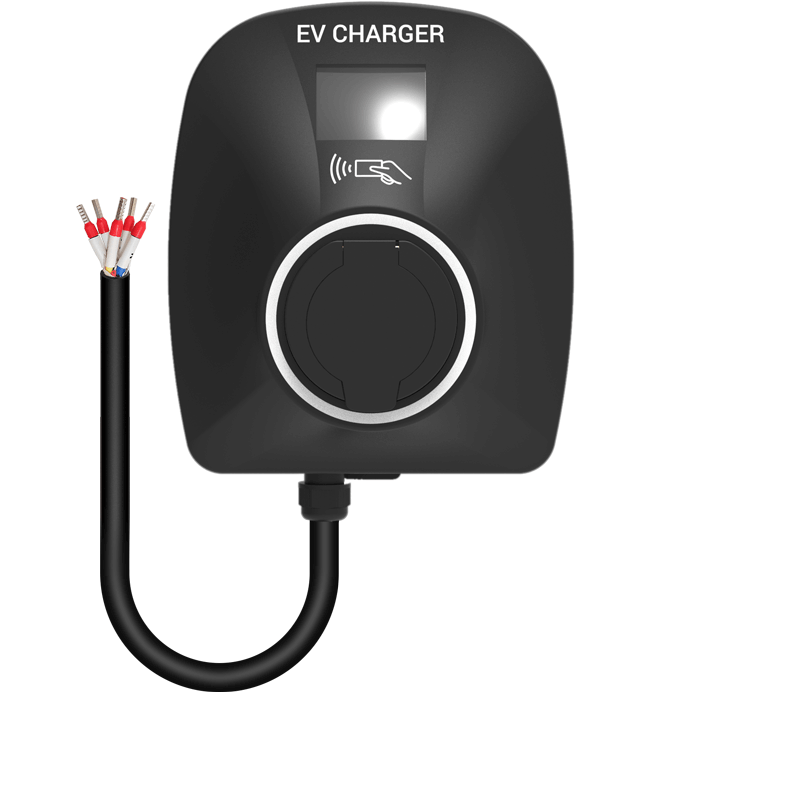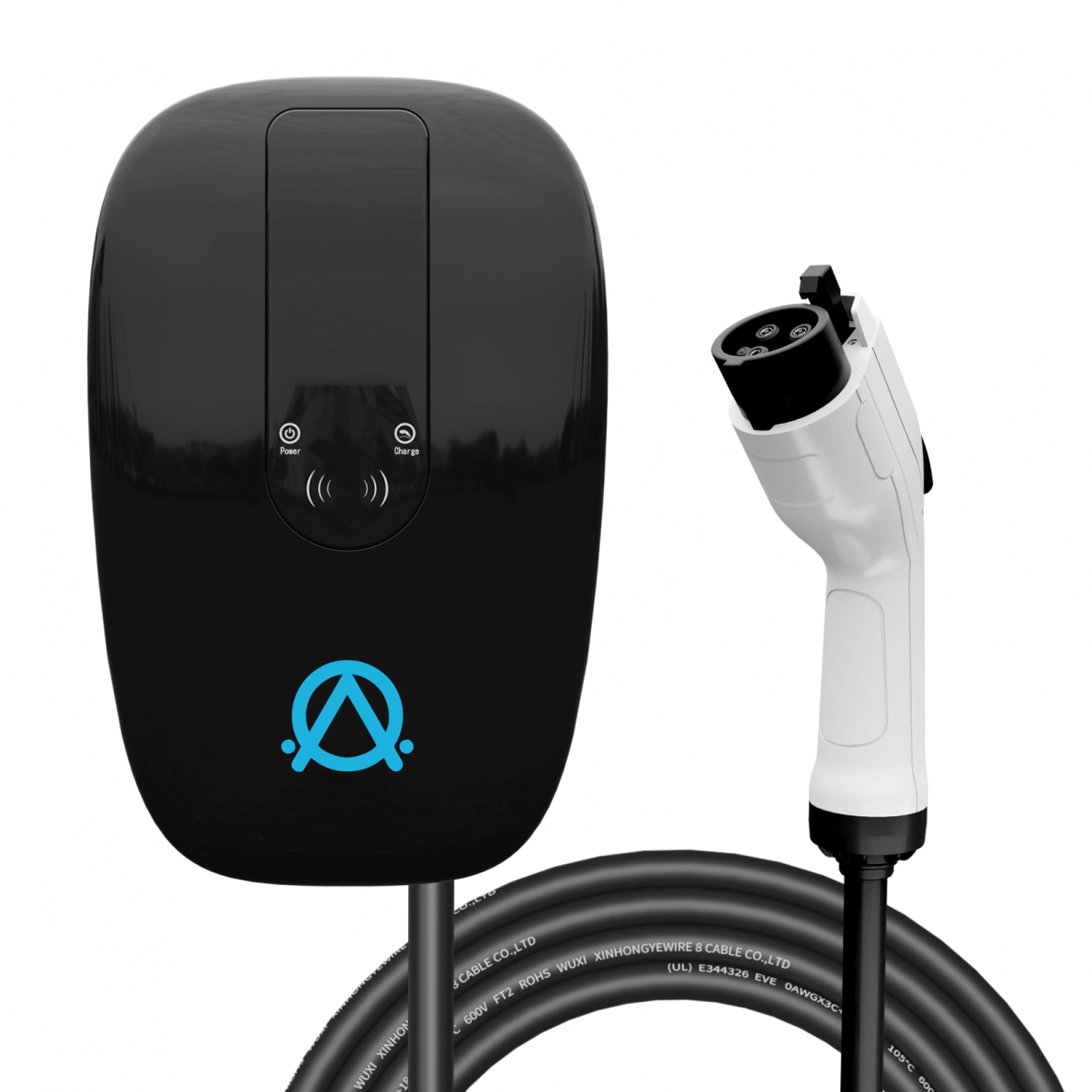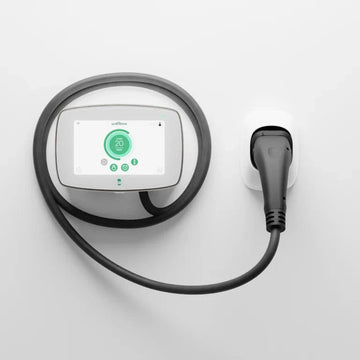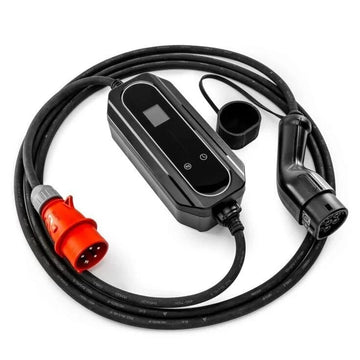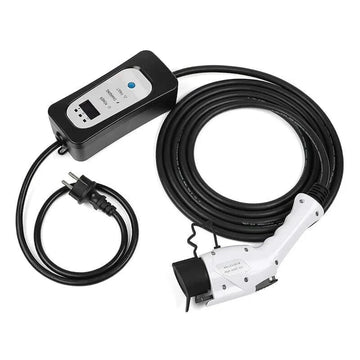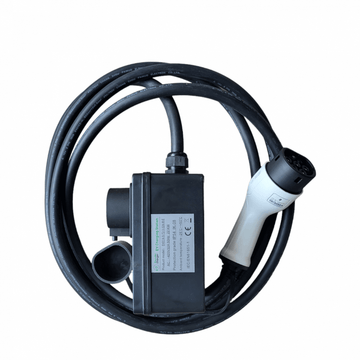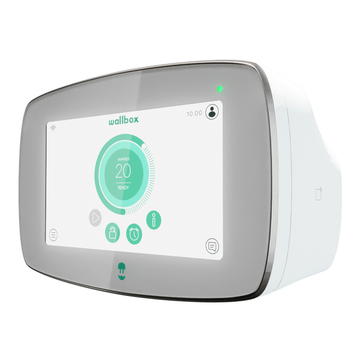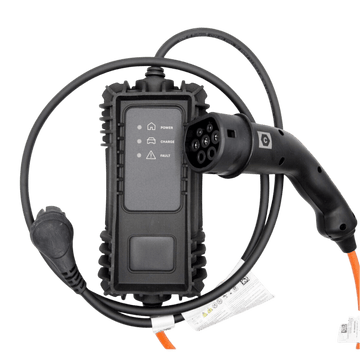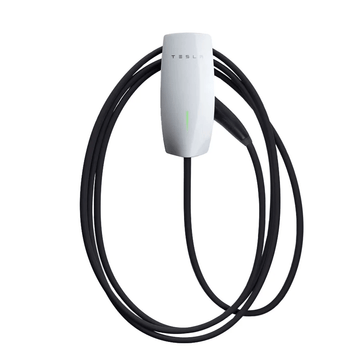As electric vehicles (EVs) become more popular, more drivers are realising the importance of a reliable and efficient home EV charger. While public EV charging points are increasing, nothing beats waking up to a full electric car after overnight charging at home. Having a dedicated EV charger at home saves time, reduces running costs, also, allows you to take advantage of off-peak tariffs and integrates with solar panels that can power your electric car charging.
In this guide we’ll look at the best home EV chargers available today at evchargers.eu, compare the big selling points, highlight all the features that matter and explain what you need to know before buying your first home EV charger. Whether you’re a Tesla owner looking at the Tesla Wall Connector or someone looking for a future proof solution with solar integration and smartphone app control, we’ve got you covered.
Why Should You Own an EV Charger?
Owning an EV charger at home is about more than just convenience, it’s about control and savings. Here’s why:
- Convenience for EV drivers: You can automatically charge your car while you sleep, ensuring that your car is always ready for your daily commute.
- Save money with tariffs and solar integration: Smart home chargers allow you to optimize your charging schedule to take advantage of lower electricity tariffs. If you have solar panels, some solar compatible chargers allow solar integration, which means that your electric car runs on clean energy.
- Faster charging speed: Plugging into a regular household socket can take many hours to charge, whereas home chargers with a three phase supply can deliver much higher power output. Depending on your three phase electricity supply, you can reach a maximum current of 22 kW that reduces EV charging times significantly.
- Smart features: Many best home EV chargers include a smartphone app that enables schedule charging, cost tracking, and Wi-Fi connectivity. This makes them more user friendly and helps EV owners understand how much energy they’re using.
- Future proofing: Buying the right electric car chargers ensures that your setup will work with more than just your current model. Right electric car chargers are compatible with non-Tesla vehicles, other chargers, and support future upgrades.
Best Home EV Chargers to Buy
The list below includes our recommended best home EV chargers. Each option is analyzed for its strengths and weaknesses to help you decide which one fits your lifestyle.
1 .Wallbox Charging Station
Wallbox is one of the most recognized names in EV chargers, Wallbox has more than a decade of experience in delivering user-friendly and future-proof solutions. Models like the Commander 2 and Pulsar Plus are known for compact design, sleek interfaces, and smartphone app integration. Wallbox chargers are available in 7.4 kW, 11 kW, and 22 kW, and are compatible with both single-phase and three-phase electricity supply homes.
Pros
- EV charger design is compact and stylish that fits well in any home setting.
- Offers Wi-Fi connectivity and mobile app that enables scheduling, monitoring, and cost tracking.
- Comes with a wide range of tethered cable lengths.
- Is compatible with solar panels.
- Offers both tethered chargers and untethered units.
Cons
- It is more expensive than some other chargers like Ohme or Pod Point.
- Some advanced features (like solar compatibility) require additional hardware.
- The installation process may be more complex depending on three phase electricity supply.
2. Thunder Charger
Thunder Chargers are built with power and versatility in mind, offering three phase supply compatibility with EV charging speeds of up to 22 kW. They are an excellent choice for households that demand rapid charging, particularly for EV owners with multiple vehicles or long daily driving distances. Thunder Chargers are known for robust design and dual sockets / dual charging lead configuration options, they are well-suited for semi-public environments like shared parking spaces.
While they may lack the sleek design and polished apps of some premium brands, they focus on performance and reliability. Thunder Chargers are a strong option for drivers who prioritize charging speed and flexibility.
Pros
- Offer high power output with three phase electricity supply.
- Can support multiple charging leads (dual sockets or dual cables).
- Are rugged and reliable, suitable for both home chargers and semi-public setups.
- Offer smart features available including OCPP protocol for remote management based on evcharger.wiki data.
Cons
- Have a bulky design compared to sleek options like Wallbox chargers.
- Offer less polished user-friendly experience than brands with dedicated apps.
- May not be necessary for EV owners with a single car or smaller batteries.
3. Teltonika Charging Station
Teltonika offers a range of home EV chargers that combine good charging speed with fair pricing, making them a smart choice for many households. They come in 7.4 kW, 11 kW, and 22 kW versions, so they work with both single-phase and three phase supply setups.
These chargers are built to be strong and reliable, and they meet important international safety standards that give EV owners confidence in long-term use. While they don’t include as many advanced smart features as premium brands, they offer solid performance and affordable price, that’s why they are an excellent option for first-time home EV charger buyers or simply wanting a dependable, cost-effective way to charge your electric car at home.
Pros
- Are available in multiple power output levels.
- Have reliable build quality and a five year warranty.
- Are good for those looking for a first home EV charger.
- Works with tethered chargers or sockets for untethered EV chargers.
Cons
- Have fewer smart features compared to premium brands.
- Lacks sleek design of competitors like Tesla or Wallbox.
- Have limited solar compatibility features.
4. V2C Trydan
The V2C Trydan chargers are premium options built with solar integration at its core, they are perfect for EV owners who want to maximize renewable energy use at home. It adjusts charging speed with dynamic load balancing that avoids overloading your system. V2C Trydan charger includes Wi-Fi, app control, and advanced scheduling, also it is compatible with three phase electricity supply and available in tethered cable options, the Trydan is powerful, versatile, and highly future proof, this is why V2C Trydan charger is one of the best choices for homes with solar panels.
Pros
- Has excellent solar compatibility for EV drivers with solar panels.
- Includes Wi-Fi connectivity and smartphone app.
- Comes with tethered cable with flexible length options.
- Supports great charging schedule management with cost tracking features.
Cons
- Has a higher price point than other chargers.
- Installation process may require advanced electrical setup.
- May be overkill for smaller batteries or only model EV drivers.
5. Tesla Charging Station (Gen 3)
The Tesla Wall Connector is seen as the easiest and most convenient option for Tesla owners because it works perfectly within the Tesla ecosystem, in both looks and performance. It has a sleek, minimalist design that matches Tesla’s style, which provides fast and reliable charging whether for daily use or overnight charging. A big advantage is how smoothly a Tesla charger communicates with Tesla cars and Tesla charging cables, making the charging process simpler than with many other chargers.
However, it works with non Tesla EVs as well, that’s why it is a practical choice for families with more than one brand of car. Tesla Wall Connector offers a mix of durability, speed, and versatility, so it stands out as one of the best home EV chargers for drivers who want style and efficiency.
Pros
- Is designed specifically for Tesla owners, but supports non Tesla vehicles.
- Has a sleek design that matches Tesla’s minimalist aesthetic.
- Offers high power output and reliable overnight charging.
- Allows easy setup for schedule charging and integration with Tesla’s systems.
Cons
- Is best suited for Tesla cars.
- Has fewer smartphone app features compared to brands like Wallbox or Ohme charger.
- Is not the cheapest option.
6. Easee Charging Station
Easee chargers are popular for simple design, light build, and flexible setup options. The Easee Charge Lite 11 kW offers a balance between size and power, it is small enough to fit neatly in a garage or outside, but strong enough to charge most electric vehicles efficiently. It comes with handy smart features like Wi-Fi connectivity and load balancing, providing modern benefits without making things too complicated. This makes it an attractive option for anyone buying their first home EV charger. Plus, it can be set up as either a tethered or untethered unit, based on chargingathome.co.uk data. Easee chargers are a solid choice for households wanting a reliable and future-proof charger that mixes sleek looks with everyday practicality.
Pros
- Have a lightweight and compact design.
- Supports tethered chargers and untethered units.
- Include smart features like Wi-Fi connectivity and load balancing.
- Are a good option for first home EV charger buyers.
Cons
- Have lower power output compared to 22 kW models.
- Lacks premium features like advanced solar integration.
- Have less rugged build quality than Thunder or Teltonika.
7. HYSUN Charging Station
HYSUN offers a flexible range of home EV chargers, with models ranging from 7 kW to 22 kW, giving EV owners plenty of choice to match their home’s electrical setup and car’s charging needs. This variety makes HYSUN suitable for smaller homes with a single-phase supply as well as larger properties with three phase electricity supply that want the fastest possible charging speed.
HYSUN supports the OCPP protocol, which enables connection with public charging points and managed systems. This is useful for drivers seeking control, scalability, or compatibility. They offer tethered and untethered unit options, dependable performance today while staying future proof for the needs of tomorrow.
Pros
- Offer a wide variety of charging speed options (7 kW, 11 kW, 22 kW).
- Are affordable compared to best home EV chargers like Wallbox.
- Support OCPP protocol for integration with wider networks.
- Is a solid choice for future proof setups.
Cons
- Design is functional but not stylish.
- Has fewer phone app features compared to competitors.
- Warranty is limited compared to five year warranty options like EO Mini Pro.
8. Aurora Charging Station
Aurora offers a 22 kW home EV charger designed to deliver reliable performance with a straightforward, no-frills approach. Aurora charger differs from premium models with heavy app and smart feature focus, also, prioritizes strong power output and dependable daily use, that’s why Aurora charger is a good fit for EV owners who want fast, efficient charging without extra features.
Aurora charger supports three-phase electricity supply, which provides one of the fastest home charging speeds available, ensuring quick replenishment for larger battery electric vehicles. Its minimalist design blends into different home environments, appealing to those who value practicality over complexity. Ultimately, the Aurora is suited for EV drivers who seek future-proof charging solutions without being overwhelmed by unnecessary extras.
Pros
- Delivers high charging speed with three phase electricity supply.
- Is simple and cost-effective.
- Is good for EV drivers who want no-frills charging.
Cons
- Lacks advanced solar compatibility and smartphone app features.
- Is not as user friendly as premium brands.
- Offers limited customization options.
Buyers Guide: How to Choose the Best EV Charger?
Selecting the best EV charger is not as simple as picking the cheapest or most powerful option. Every household and electric car has different needs, so buyers should think carefully before committing to one model based on markgreenworld.com data. The following are the most important factors to consider:
Charging Speed
The charging speed of an EV charger depends on the car's onboard charging capacity and home’s electrical supply.
- 7.4 kW chargers: These are the standard for homes with a single-phase electricity supply (common in much of Europe). They can replenish about 30 - 40 km of range per hour, making them ideal for overnight charging.
- 11 kW chargers: A great option for homes with a three phase supply. These provide faster charging without pushing energy bills too high.
- 22 kW chargers: The fastest home chargers available, ideal for households with a three phase supply and EV drivers who want flexibility. They can fully charge most cars in just a few hours, though not all EVs can accept 22 kW power output.
Tip: Buyers should check their car’s maximum charging capacity. Buying a 22 kW charger won’t make sense if the electric car can only accept 11 kW.
Tethered Cable vs. Untethered Unit
Buyers need to decide on a tethered charger (with a charging cable permanently attached) or an untethered EV charger (where you plug in your own cable).
Tethered Chargers
Pros: Are convenient. It allows users to just grab the cable and plug it in, no extra storage required.
Cons: Are less flexible if you change to a car with a different connector.
Untethered Chargers
- Pros: Are more future proof and have a neater appearance when not in use.
- Cons: Are slightly less convenient because you need to get the charging lead out each time.
EV charger choice comes down to convenience vs. flexibility. Tethered cable may be the best option if you always use the same type of connector (like for Type 2 charging cables).
Smart Features
Modern best home EV chargers often come with smartphone apps and Wi-Fi connectivity, that allow you to control your charging schedule and monitor usage. Look for features like:
- Schedule charging: Set your car to automatically charge during off-peak electricity times to save money.
- Cost tracking: Enable cost tracking of energy usage and expenses.
- Dynamic load balancing: Prevents overloading your home’s electrical system by adjusting maximum current based on other appliances.
- Solar compatibility: Some chargers allow you to prioritize renewable energy for charging.
- These features are not just “nice extras” but they can directly help save money and reduce running costs.
Solar Compatibility
Solar-compatible chargers are a big selling point for solar panel owners. These chargers allow you to direct excess solar power into your EV instead of back into the grid. Some chargers offer solar integration modes, that include charging only on solar, blending solar with grid, or prioritizing speed.
Using solar-compatible chargers is a smart way for EV drivers to reduce energy bills, lower their carbon footprint, and make home chargers part of a greener ecosystem.
Installation Process
Finally, don’t overlook the installation process. A professional electrician will need to confirm:
- Whether your home supports three-phase or only single-phase electricity supply.
- If your current wiring can handle the charger’s maximum current without tripping breakers.
- Where the charger unit should be mounted (garage wall, driveway, etc).
A smooth installation ensures your charger is safe and future proof. While the installation process can add to the overall cost, it’s vital for safety and long-term reliability.
How Much Do Home Chargers for Electric Vehicles Cost?
The price of home EV chargers varies significantly depending on charging speed, smart features, and solar compatibility. Here’s a breakdown:
- Budget models (500 - 700€) include basic untethered EV chargers or simple tethered units that lack smart features. But they are good for users who just need a reliable way to charge without extras.
- Mid-range smart chargers (800 - 1,200€) typically include Wi-Fi connectivity, schedule charging, and cost tracking. They include options like Wallbox Pulsar Plus or Easee Lite.
- Premium chargers (1,200 - 1,800€) include solar integration, dynamic load balancing, and smart home compatibility. These are designed to be future proof and reduce running costs.
Installation Costs:
- Standard installation typically costs 300 - 800€.
- More complex setups (adding a three phase supply, extending wiring, or solar integration) can cost 1,000€+.
- Tip: Some governments offer incentives or rebates for installing home chargers, buyers should check local programs to save money
Do You Need a Smart Charger?
While you can technically charge an EV with a basic wall charger socket, a smart charger offers far greater value and is why most experts recommend one. Smart charger helps reduce energy bills by aligning with low rate tariffs, also it allows automatic charging, which you can set it once and let the system power your car at the cheapest or greenest times.
Features like cost tracking and smartphone app integration make it simple to see how much energy your EV is using, and then solar integration lets households make the most of their own renewable power. In the end, even though a smart charger isn’t absolutely essential, it's one of the most future-proof and cost-effective investments an EV driver can choose based on evcalculator.pro data.
What Certifications and Safety Standards Matter?
Safety is critical when dealing with electric car chargers. You should look for chargers that meet recognized standards:
- CE certification: Confirms the product meets European safety requirements.
- OCPP compliance: Ensures compatibility with smart charging networks and future upgrades.
- Local grid approval: Some utilities require chargers to be on an approved list before installation.
- Built-in protection features: Look for ground fault detection, surge protection, and current regulation.
Buying uncertified or low-quality chargers can be dangerous, so you should prioritize brands that meet these standards.
How Much Does Installation Cost?
The installation process is just as important as the charger itself. EV nstallation costs can vary depending on your home’s electrical system:
- Standard installation (500€): Includes mounting the charger, connecting it to the fuse box, charging cables, basic wiring setup.
- Complex installation (1,000€+): Is necessary if you need a three phase supply, longer cable runs, or solar integration. In some cases, complex installations may require upgrading your electrical panel.
Always hire certified electricians for safety. The cost might feel high upfront, but a professional installation ensures your home chargers work reliably for years. Read more on how to install EV chargers.



